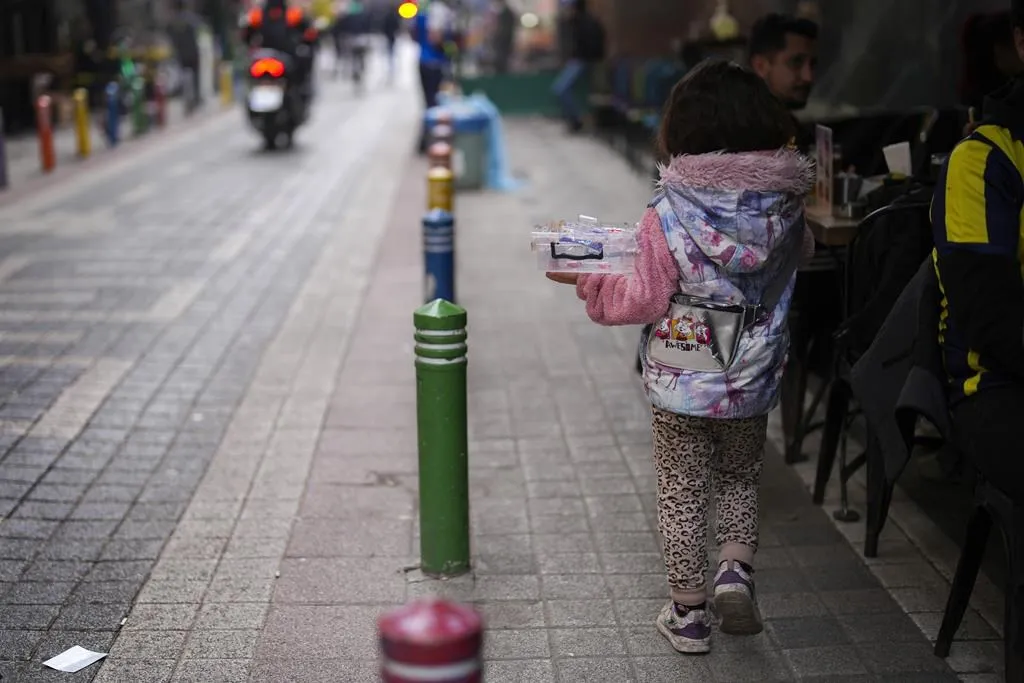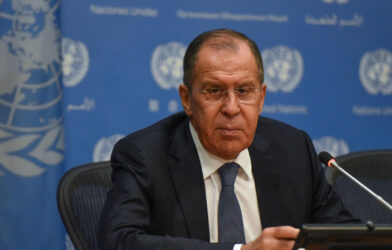Millions of children in Turkey are being forced into work to help their families make ends meet, as soaring living costs push one-third of the country’s youth into poverty.
In a cramped, single-room apartment in one of Istanbul’s poorest districts, 11-year-old Atakan Sahin curls up on a worn-out sofa with his siblings, watching TV while their mother prepares a simple pot of pasta—the only meal they can afford most evenings.
Atakan and his three younger siblings are among the estimated seven million Turkish children living in poverty, according to a 2023 report by UNICEF and the Turkish Statistical Institute. Their mother, Rukiye Sahin, 28, says they often go without essentials. “They don’t get to eat chicken, they don’t get to eat meat. I send them to school with torn shoes,” she laments.
Skyrocketing inflation—fueled by the Turkish lira’s decline and a series of unorthodox economic policies championed and later abandoned by President Recep Tayyip Erdogan—has left families struggling to afford even basic necessities. Experts warn this crisis is creating a generation of children who must work instead of going to school, missing out on education and a chance at a better future.
For Atakan, childhood is a luxury he can’t afford. Most days, he follows his father through the streets, rummaging through dumpsters for recyclables to sell. “I can’t go to school because I have no money,” he says. “On days I don’t go, I collect plastic and whatever else we can find.” The little money they make helps buy food and school supplies for his younger siblings.
Children in impoverished areas of Istanbul often earn a few lira by selling small items—pens, tissues, bracelets—outside bars and cafés late into the night. Others take on physically demanding jobs to support their families, a reality that contrasts sharply with Turkey’s global image as an emerging economic power.
Erdogan, who has been in power for over two decades, frequently touts his administration’s social welfare programs, declaring that poverty is a thing of the past. Speaking at the G20 summit in November, he described Turkey’s social security system as “one of the most comprehensive and inclusive” in the world. Finance Minister Mehmet Simsek, responsible for tackling inflation, argues that the country’s minimum wage of 17,000 lira ($488) is not insufficient, though he has pledged to raise it soon.
Yet, for families like the Sahins, state assistance falls far short of meeting their needs. The family receives 6,000 lira ($173) in monthly government aid—just enough to cover their rent, leaving nothing for food, clothing, or school supplies. Meanwhile, inflation continues to erode household budgets, with food prices jumping 5.1% in a single month in late 2023.
The impact is particularly harsh in neighborhoods like Tarlabasi, where gentrification has driven rents up fivefold, forcing low-income families to make impossible choices—pay rent or buy warm clothing, send their children to school or have them work for extra income.
Some volunteers are trying to alleviate the suffering. Mehmet Yeralan, a former restaurant owner, distributes essentials like coats, notebooks, and food to struggling families in Tarlabasi. “Our children don’t deserve this,” he says. “Families are barely surviving. Kids are selling tissues on the streets to support their families. This is deep poverty.”
Poverty researcher and activist Hacer Foggo warns that Turkey is raising a generation trapped in hardship. Many children drop out of school to work or enter vocational programs that prioritize labor over education, paying them a fraction of the minimum wage. “This isn’t real education—it’s just cheap labor,” she explains.
According to UNICEF, Turkey ranked 38th out of 39 European and OECD countries for child poverty between 2019 and 2021, with 34% of children living below the poverty line. The tragic consequences of this crisis surface all too often. In November, five children died in a fire in Izmir while their mother was out collecting scrap to sell. Their father, temporarily released from prison to attend their funeral, became a heartbreaking symbol of the desperation poor families face.
For Rukiye, the struggle is relentless. “Sometimes I go to bed hungry, sometimes I go to bed full,” she says. “But we’re always falling behind.”
Her son, despite everything, still dares to dream. “I want my own room. I want to go to school every day. I want everything to be normal,” Atakan says. “One day, I’d love to be a football player—to take care of my family.”










Comments are closed